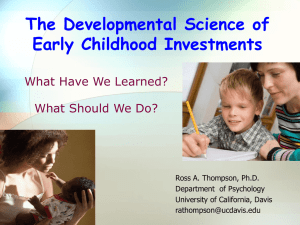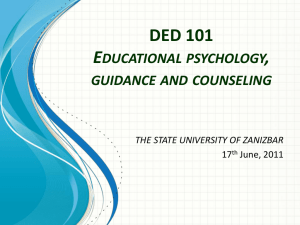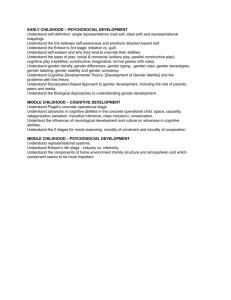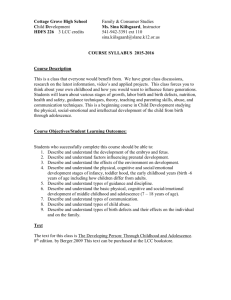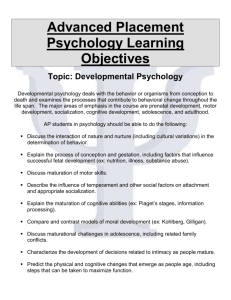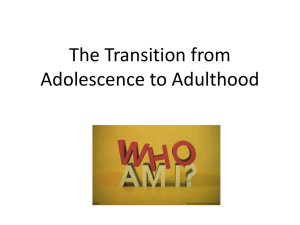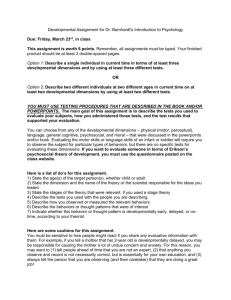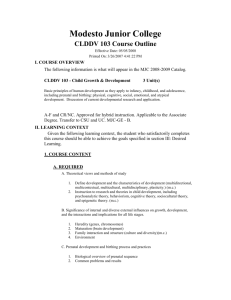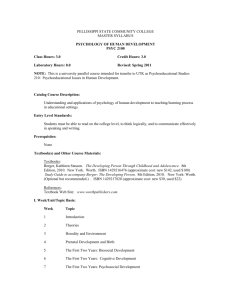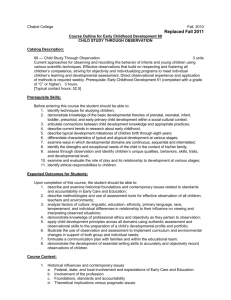CDEV 100
advertisement
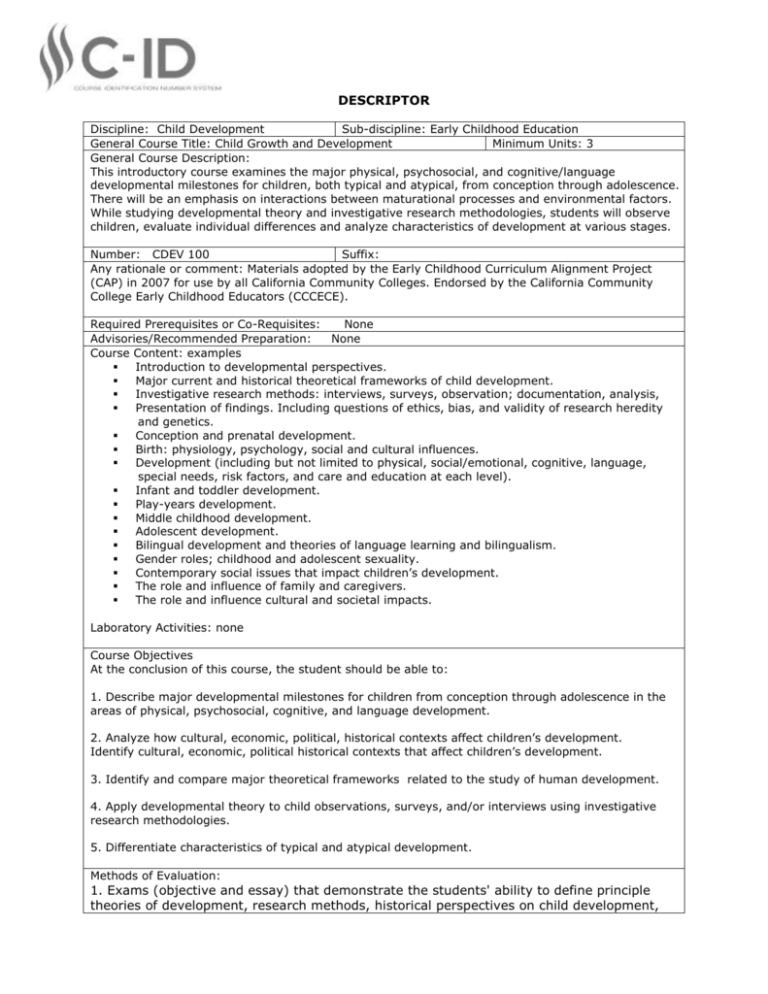
DESCRIPTOR Discipline: Child Development Sub-discipline: Early Childhood Education General Course Title: Child Growth and Development Minimum Units: 3 General Course Description: This introductory course examines the major physical, psychosocial, and cognitive/language developmental milestones for children, both typical and atypical, from conception through adolescence. There will be an emphasis on interactions between maturational processes and environmental factors. While studying developmental theory and investigative research methodologies, students will observe children, evaluate individual differences and analyze characteristics of development at various stages. Number: CDEV 100 Suffix: Any rationale or comment: Materials adopted by the Early Childhood Curriculum Alignment Project (CAP) in 2007 for use by all California Community Colleges. Endorsed by the California Community College Early Childhood Educators (CCCECE). Required Prerequisites or Co-Requisites: None Advisories/Recommended Preparation: None Course Content: examples Introduction to developmental perspectives. Major current and historical theoretical frameworks of child development. Investigative research methods: interviews, surveys, observation; documentation, analysis, Presentation of findings. Including questions of ethics, bias, and validity of research heredity and genetics. Conception and prenatal development. Birth: physiology, psychology, social and cultural influences. Development (including but not limited to physical, social/emotional, cognitive, language, special needs, risk factors, and care and education at each level). Infant and toddler development. Play-years development. Middle childhood development. Adolescent development. Bilingual development and theories of language learning and bilingualism. Gender roles; childhood and adolescent sexuality. Contemporary social issues that impact children’s development. The role and influence of family and caregivers. The role and influence cultural and societal impacts. Laboratory Activities: none Course Objectives At the conclusion of this course, the student should be able to: 1. Describe major developmental milestones for children from conception through adolescence in the areas of physical, psychosocial, cognitive, and language development. 2. Analyze how cultural, economic, political, historical contexts affect children’s development. Identify cultural, economic, political historical contexts that affect children’s development. 3. Identify and compare major theoretical frameworks related to the study of human development. 4. Apply developmental theory to child observations, surveys, and/or interviews using investigative research methodologies. 5. Differentiate characteristics of typical and atypical development. Methods of Evaluation: 1. Exams (objective and essay) that demonstrate the students' ability to define principle theories of development, research methods, historical perspectives on child development, ethical issues, and recent trends in the field. 2. Research papers, essays and/or group projects that demonstrate student's ability to trace human development from conception through adolescence, analyze specific theories in child development, compare and contrast physical, cognitive and psychosocial development norms and deviations from typical development and analyze historical perspectives related to child development. 3. Instructor assessment of participation in classroom discussions, presentation of group projects, observational study, and direct classroom experience with children. Sample Textbooks, Manuals, or Other Support Materials: The Developing Person Through Childhood and Adolescence, Berger, current edition, Worth Publishers. The Developing Child, Bee & Boyd, current edition, Pearson Publishers. FDRG Lead Signature: [For Office Use Only] Date: April 27, 2011 Internal Tracking Number
